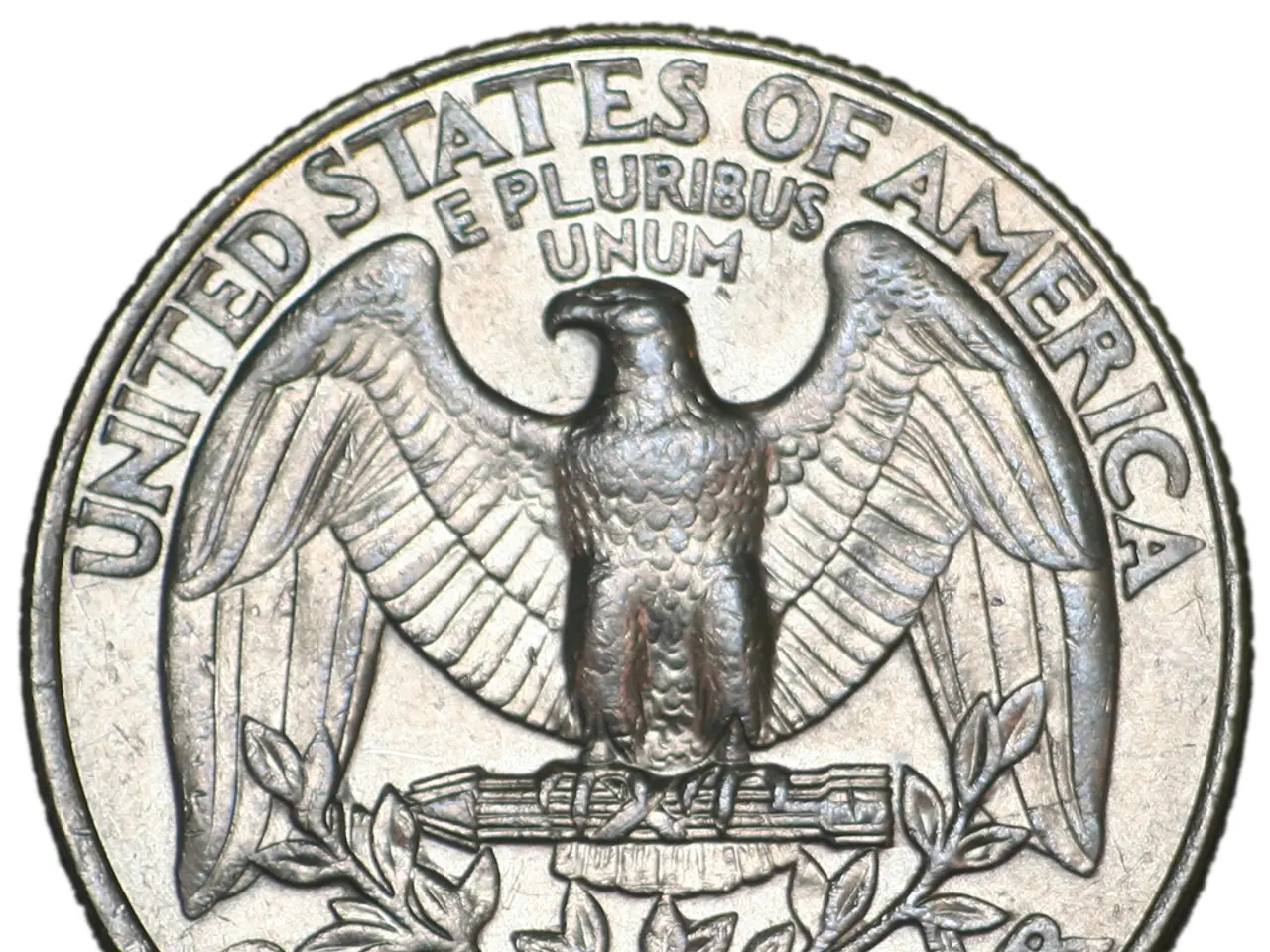Digital Fintech Proposes Tokenized Investment Fund Focused on AI Stock Tokens
In the dynamic world of finance, three major players - Bank of America, Goldman Sachs, and JP Morgan - dominate more than half of the Exchange-Traded Fund (ETF) issuance and redemption in the United States. However, a new wave is on the horizon, as innovative platforms like DigiFT are set to disrupt the market with tokenized funds.
DigiFT, a smart contract-based digital asset exchange, is preparing to launch a tokenized fund containing AI stocks. The key target market for these new tokenized funds are web3 investors, including corporate treasuries, whales, and crypto asset managers. Partners such as UBS and Invesco have already shown interest in this groundbreaking venture.
Hash Global, a partner in two tokenized funds including the DigiFT Hash Global AI Index Fund, prefers to remain anonymous. The component stocks of the fund are likely to include tech giants like Nvidia, Apple, Microsoft, Tesla, and Alphabet.
Tokenizing the underlying assets creates unprecedented liquidity, transparency, and accessibility for institutional investors. This transformation fundamentally changes asset management by enabling fractional ownership, faster settlement, global accessibility, and automation through smart contracts.
For institutional investors, this leads to increased efficiency, cost reductions, enhanced transparency, and broader market access. Transaction settlement times reduce from days to seconds due to blockchain’s instant, on-chain clearing, which cuts counterparty and operational risks and lowers fees.
Smart contracts automate compliance, dividend distributions, and record-keeping, reducing manual errors and operational costs. Custody options become more flexible, letting investors self-manage wallets or use custodial services depending on their risk appetite.
From the institutional perspective, tokenization:
- Broadens market access by fractionalizing assets and enabling global participation even from developing markets.
- Enhances liquidity by creating a common blockchain-based settlement layer where diverse assets can be held and traded efficiently.
- Provides transparency through blockchain’s immutable ledgers, improving auditability and trust.
- Enables 24/7 trading, overcoming traditional market hours and geographic limitations, thereby increasing market efficiency and investor opportunity.
However, regulatory uncertainty remains a critical consideration. Compliance frameworks are evolving to address risks like legal ownership clarity and investor protection. Leading firms emphasize regulatory alignment to ensure legitimacy and market stability.
In summary, tokenizing fund assets such as AI stocks reshapes asset management by improving operational efficiency, investor inclusivity, liquidity, and transparency. This offers compelling benefits to institutional investors willing to navigate evolving regulatory landscapes. The comparison of these funds with conventional funds highlights the disruption of portfolio creation enabled by automation.
[1] Composite Ledger Insights [2] tzido [3] DigiFT official statement [4] Hash Global internal documents [5] Interviews with DigiFT and Hash Global representatives
Read also:
- AI Inspection Company, Zeitview, Secures $60 Million Funding for Expansion
- Future of Payments: If the U.S. regulates stablecoins through the GENIUS Act, according to Matt Hougan
- Ongoing trade friction as the American administration levies fresh import taxes on goods arriving from China
- High-Performance McLaren Automobile: McLaren Speedtail








